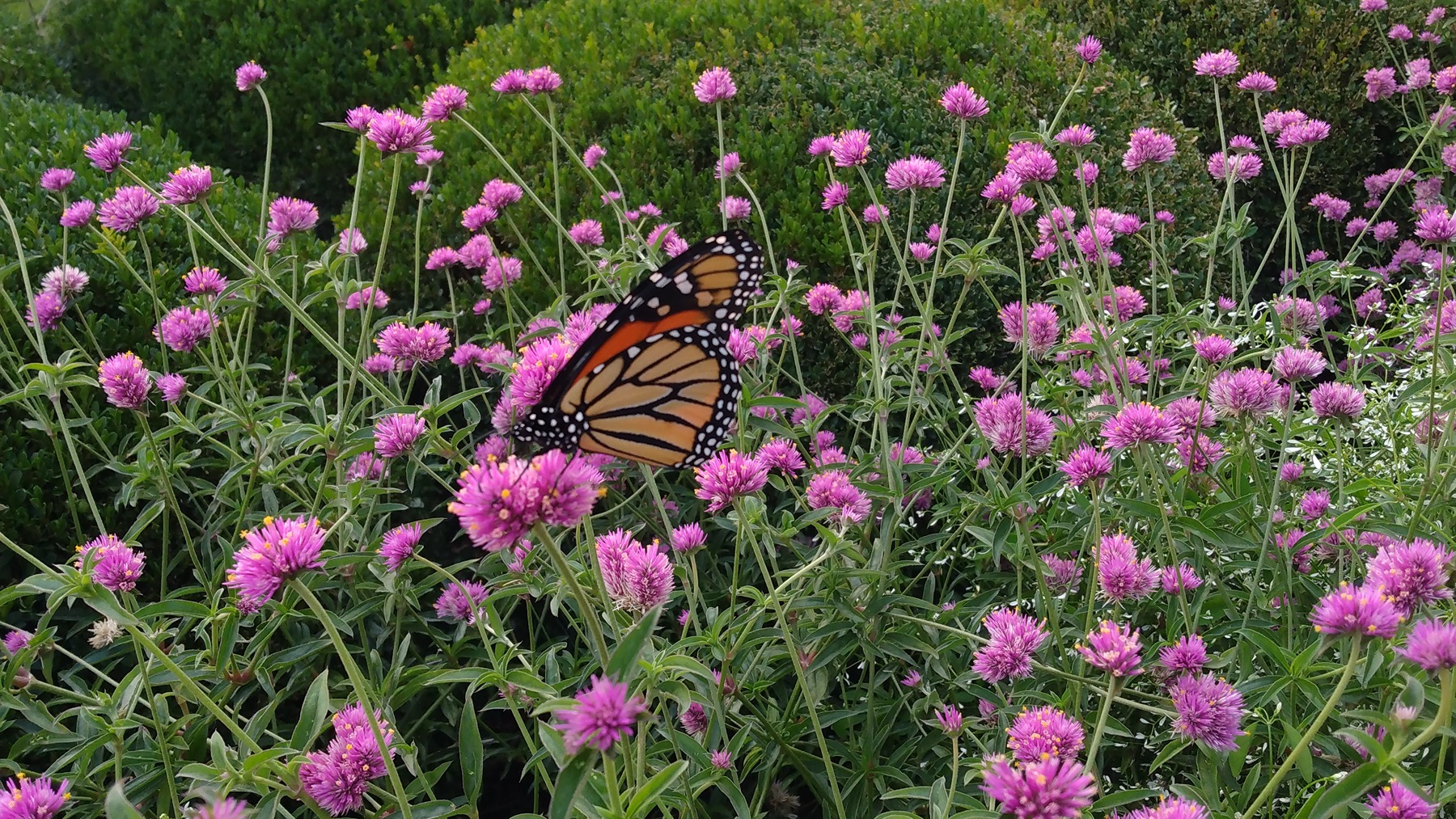What’s buzzing in your backyard? Learn about protecting pollinators, beekeeping with Purdue Extension
Small but mighty, pollinators contribute to everything from aster to apples to almond butter. June marks National Pollinator Month, the perfect time to celebrate Indiana’s 400-plus species of native bees and other pollinators — honeybees, hummingbirds, beetles and butterflies, to name a few. Purdue Extension offers research-backed resources to help anyone learn how to better care for Indiana’s pollinator populations.
Educational videos and publications
Extension offers year-round resources online through videos, publications and web pages.
Purdue Extension's main YouTube channel has bite-sized videos on various topics, including planting to protect pollinators, pollinators and their connection to your dinner and protecting pollinators from common threats, to help people looking to make small improvements to their yards and gardens. Other Purdue Extension channels, like Purdue Extension ANR - Owen & Clay Co., have archived webinars that include recent research from Purdue experts.
For those looking for how-to guides and peer-reviewed research, the Purdue Extension Education Store features numerous pollinator publications, like the Protecting Pollinators series. The series discusses topics ranging from pollinators in home lawns and landscapes to controlling Varroa mites in bee hives to protecting pollinators in commercial agriculture. The digital publications are either $1 or free.

The Extension Entomology website is a centralized location to find information about beekeeping and pollinator protection. The site’s resources include manuals for youth and adults interested in beekeeping, guides for commercial fruit and vegetable growers and tips for gardeners and landscapers to help all pollinators.
Beekeeping basics and beyond
The Purdue Extension Entomology website offers more information about honeybees and beekeeping through The Bee Hive. The Bee Hive website answers beekeeping FAQs, explains available bee-testing services and provides background on Purdue’s bee breeding program. The information comes from the Extension specialists’ experiences and Purdue’s Harpur Bee Lab, which studies topics related to honeybees like Varroa mite resistance.
For beekeepers and researchers looking to advance their skills, the Bee Hive offers two advanced short courses: “Mastering the Art of Queen and Drone Rearing” and “Instrumental Insemination and the Architecture of a Successful Breeding Program in the 21st Century.” Senior apicultural specialist and honeybee breeder Krispn Given leads both courses, which draw students from around the world.
The first hands-on workshop teaches 25 students two queen-rearing systems. The intense three-day workshop is designed to teach beekeepers how to produce superior queens and drones. Attendees learn and complete every step of the process, from preparing a cell builder colony to transferring day-old larvae (grafting) to preparing nuclei colonies to care for the newly emerged queens. Ideally, Given said, each student leaves with the skills to rear quality queens.



“Every year, I learn something from the students,” Given said. “Honeybees are such a charismatic insect. There's a broad spectrum of people who are interested in the classes, and the diversity of people who enroll — physicists, carpenters, artistic people — make the experience even more rewarding.”
The instrumental insemination course accepts two to three students who are successful in queen and drone rearing and demonstrate advanced beekeeping skills. The smaller class size allows Given and the class assistants to give students one-on-one teaching. Detailed instruction on semen collection and insemination will be emphasized along with sterile technique and post insemination care of queens.
“There aren’t many bee breeders here in the U.S.,” Given explained. “Instrumental insemination acts as a catalyst for bee breeding. Enabling controlled mating that accelerates trait selection is essential for building a successful breeding program.”


More information about the Bee Hive’s short courses, including cost, can be found here. Due to high demand, people interested in attending this year’s courses must join a waitlist. Those with additional questions can reach out to Given at kgiven@purdue.edu.
Community education and family-friendly fun
Many county extension offices offer workshops about beekeeping and pollinators throughout the year, but the biggest event is Purdue Extension’s Pollinator Day in Floyd County. The free, family friendly annual event is dedicated to all things pollinators, and attendees can learn through games, crafts and educational booths.
“Pollinators are responsible for about one in three bites of our food,” said Gina Anderson, event organizer, Extension educator in Floyd County and Purdue alumna. “Pollinator Day helps people see what would happen if our pollinators declined, and it gives them opportunities to learn how to create good habitats to help pollinator populations.”



This year, Pollinator Day celebrated its tenth anniversary and welcomed over 2,100 attendees. Many, like attendee Michael Short, left with native plants for their homes and a greater appreciation for pollinators.
“As a Purdue graduate and engineer by trade, I am fascinated by the system of systems of our native pollinators,” Short said. “I brought my whole family to Pollinator Day! There were so many booths about things like native trees, bats, seeds, beeswax candle making. One booth even had popsicles. I learned a lot and even came home with an American Plum tree to plant so we can do our part to help our native pollinators. Our family will definitely be attending next year!”
Purdue Extension leads the event, but it is also supported by many local businesses and nonprofits who provide the support needed to keep the event free.
“I couldn't do this program without the support of Sunnyside Master Gardeners, Spring Valley Beekeepers, Duke Energy, the Sam Shine Foundation and all of the local businesses who give generous support to make sure the program is free to the community,” Anderson said.
For more information about what resources are available in your county, reach out to your local Extension office to connect with an educator today.
